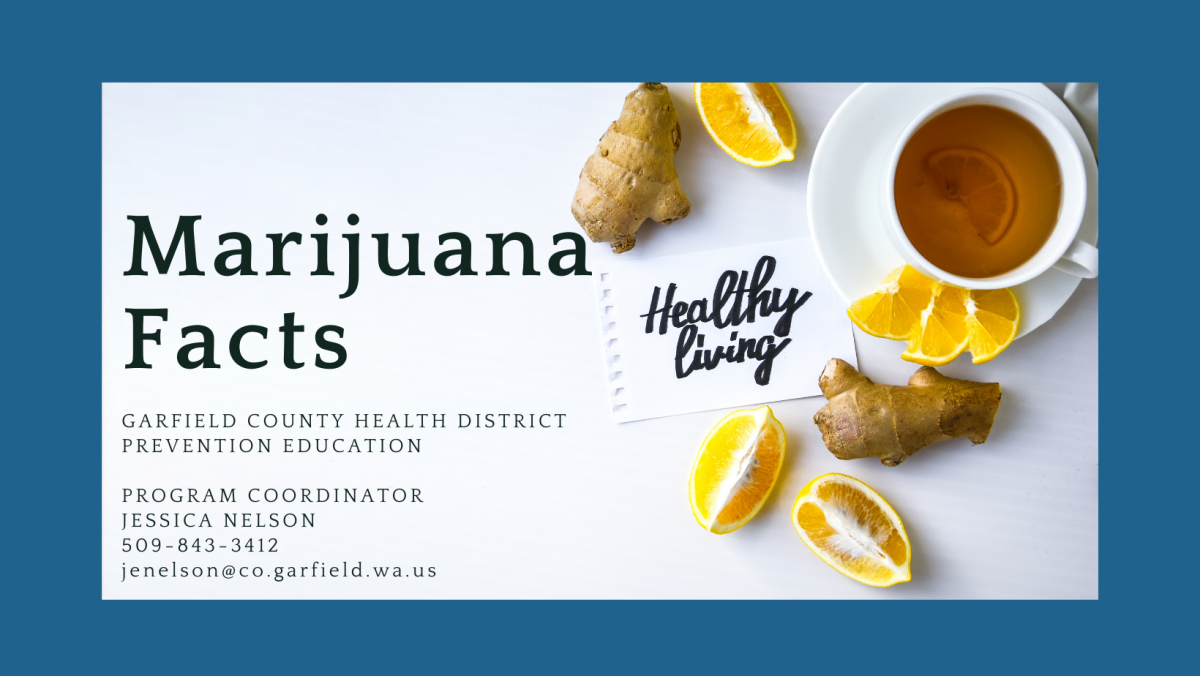Marijuana

Washington State Recovery Helpline 24 hours, 7 days a week Anonymous Free support for marijuana addiction 866-789-1511
Overview
Marijuana use by adults (21+) has been made legal in Washington State, however, it still has detrimental health effects both mentally and physically. Marijuana negatively affects the brain in memory, learning, attention, decision making, coordination, emotions, and reaction time. Youth and children are especially at risk of long-term adverse effects of Marijuana due to their developing brains.
Marijuana has changed over the years. In 2008 the average delta-9 THC (the main psychotropic substance in Marijuana) was 9%. Delta-9 THC almost doubled by 2017 to 17% with some ranging as high as 45% today. This drastic delivery of high levels of THC on a person's brain has disturbed the medical community as they do not know the full extent of the consequences on the human body.
Marijuana can affect people differently in both short-term and long-term ways.
| Short-Term Effects | Long-Term Effects |
|
|
Driving Under the Influence
Like Alcohol, Marijuana affects judgment and general motor skills. Driving while high is not safe and can often be responsible for car crashes.
Marijuana Use During Pregnancy
Marijuana use during pregnancy can have detrimental effects on the growing baby. Growth restriction, premature birth, still birth, and brain development problems are just a few of the consequences of using while pregnant. THC (Tetrahydrocannabinol) can also be passed from a mother to her baby through breast milk. This can further impact the baby's development.
Marijuana Can be used by:
Smoking
Vaping
Dabbing
Edibles, oils and beverages
Tinctures, capsules and sprays
Prevention
Today's youth are especially vulnerable to the pressures that surround them. Many youth say they choose to use Marijuana because it makes them "feel good" or to help their mental health, without realizing the consequences. A youth's environment can help turn them away from Marijuana. It is up to us to help protect our future generation. Some steps to help prevent young people from using Marijuana:
| Know the Facts | Do your homework and find up-to-date information on the latest products and why teens are using. Only share age-appropriate information, but be ready to have an honest conversation on the facts. |
| Start Talking Early | It's important to approach the child and have honest guided conversations. Pre-middle school and High School are good times to visit about the consequences, both short-term and long-term. Keep talking as they get older, setting clear expectations and rules, while also hearing them out and acknowledging what they might be going through. |
| Set a Good Example | If you use it, consider how that looks to your child. Your behavior does have an effect on them. Consider the hotline above to help you kick the habit to encourage your whole family to be healthy. |
| Spend Time Together | Find opportunities to engage in healthy activities. Share thoughts and common interests. Check-in with your child regularly. |
| Signs of Use: |
Change in Friends, behavior, mood, and Personality Uses heavily-scented perfumes, candles, air fresheners, or dryer softener sheets to hide the smell Look for drug paraphernalia, such as lighters, roller papers, vape pens The disappearance of money or valuables Lethargic, excessive sleep, breathing trouble, "Cotton Mouth"- dry mouth and lips, bloodshot eyes Change in academic or work performance |
| Help: |
If your child is using marijuana, try to understand why and how you can help. the Washington Recovery Helpline: 1-866-789-1511, 24 hour, confidential help and referral Teen Link: 1-866-789-1511, confidential, anonymous, and non-judgemental help line answered by teens every day from 6-10pm. |
More Marijuana Resources and Information:
Learn About Marijuana Washington
MedLine Plus: Marijuana Information (National Library of Medicine)
Washington Poison Center- The Cannabis Landscape
Washington Poison Center- Facts for Influential Adults
Partnership to End Addiction- Marijuana Talk Kit
Source of Information:
Bidwell LC, York Williams SL, Mueller RL, Bryan AD, Hutchison KE. (2018). Exploring cannabis concentrates on the legal market: User profiles, product strength, and health-related outcomes. Addictive Behaviors Reports. 2018;8:102-106.
Raber JC, Elzinga S, Kaplan C. Understanding dabs: contamination concerns of cannabis concentrates and cannabinoid transfer during the act of dabbing. The Journal of Toxicological Sciences. 2015;40(6):797-803.
Centers for Disease Control and Prevention- What We Know About Marijuana